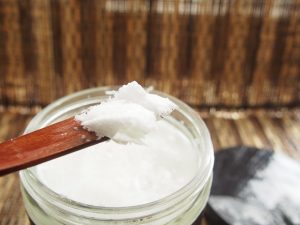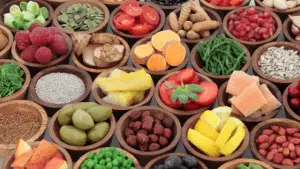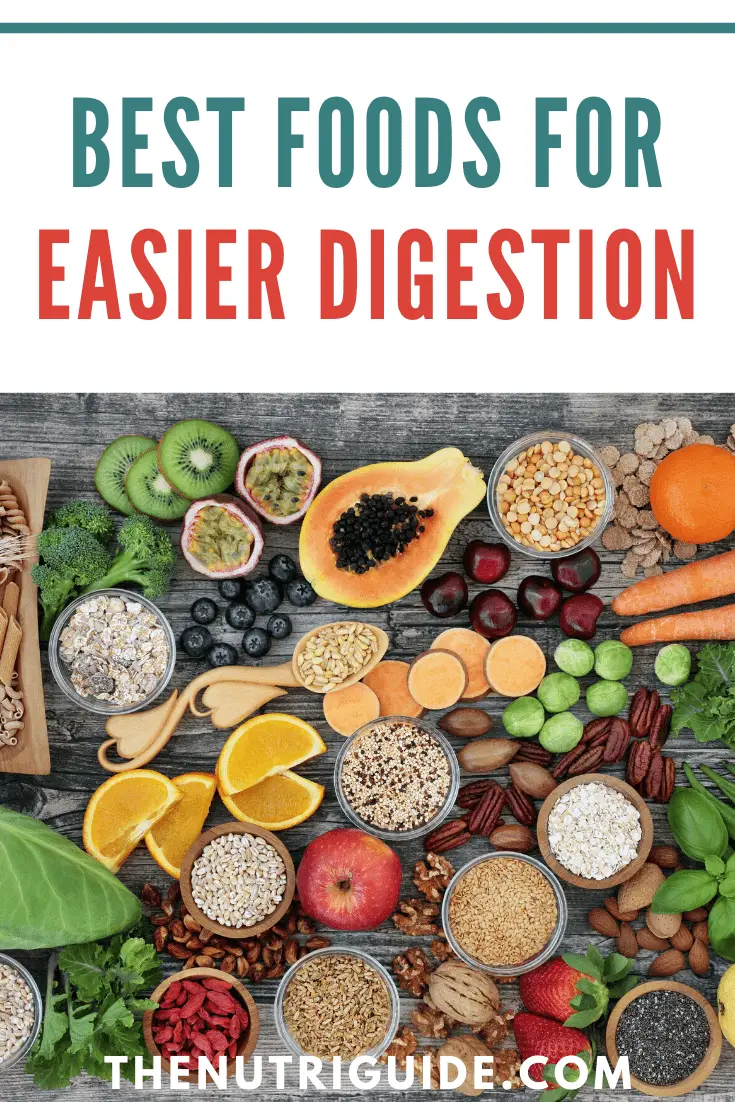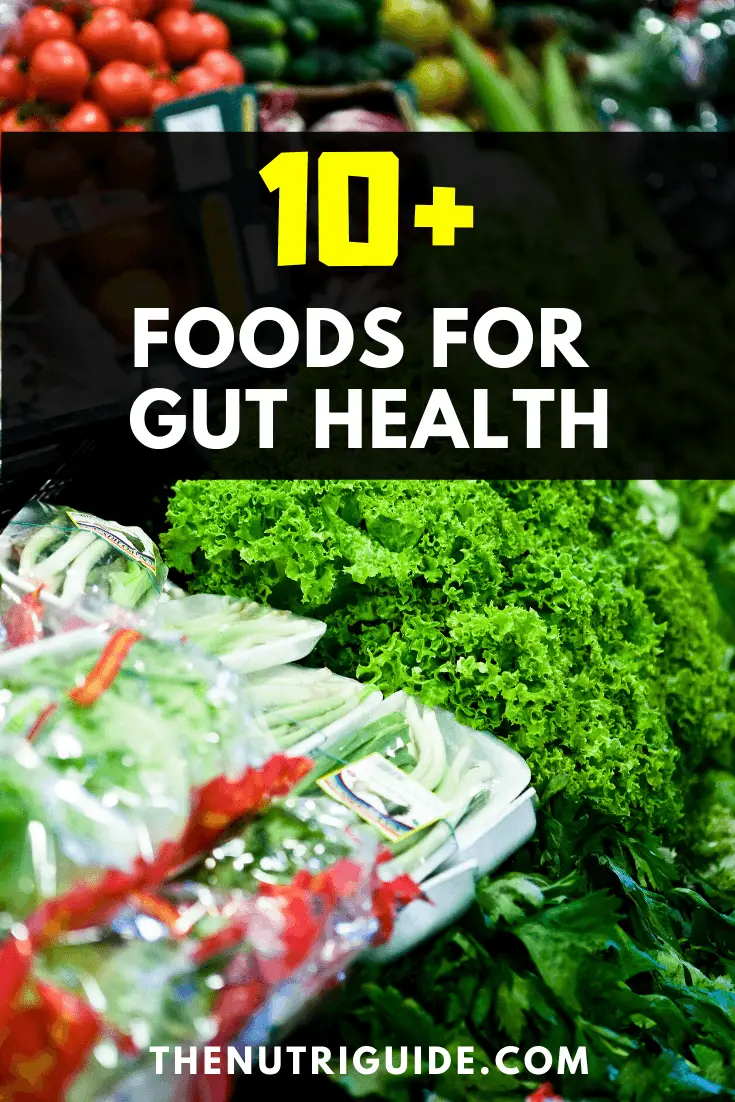The Best Superfoods That Aid in Digestion
The Best Superfoods That Aid in Digestion
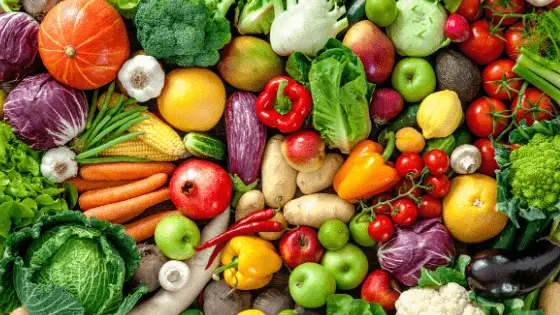
When you buy through links on our site, we may earn an affiliate commission at no additional cost to you (learn more)
It seems like half the commercials on TV these days are for medicines targeting digestive problems or conditions. Unfortunately, the poor diet of the American public plays a significant role in the rising incidence of issues like diarrhea, constipation, and heartburn. And the number of people suffering from chronic conditions like ulcerative colitis and irritable bowel syndrome (IBS) continues to grow.
So, what foods can help with these problems and can prevent many of the most common gastrointestinal symptoms? And how do certain foods help you stay healthy and improve the overall status of your digestive tract?
The Basics of a Healthy Gut
Your digestive system is a series of complex organs that help to break down and digest your food, absorb the water and nutrients from these materials, and then expel unnecessary wastes from your body. Throughout this tract, you have helpful microbes, including yeasts, bacteria, and other microscopic organisms, whose job it is to break down and help digest your food. This is your gut microbiome, and it is vital to not only health digestion but also your overall immune system function.
In addition to maintaining these healthy microbes, you also need to take care of the lining of your gut, which prevents large molecules of food from entering your body before they are fully digested. Your gut also has a layer of mucus protecting the lining, and this is where enzymes and immune cells are actively protecting the outer layer of your tract. Protecting all of these is essential to your health and wellness.
The Superfoods That Protect Gut Health
Foods High in Fiber
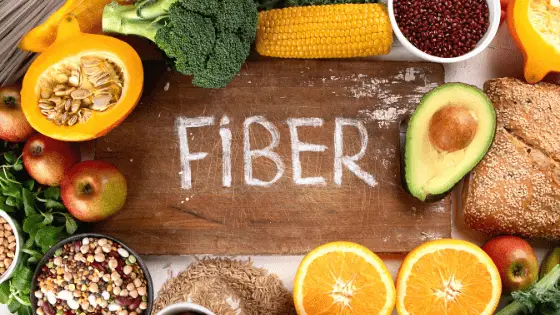
When it comes to improving your digestion, eating foods that are high in fiber provides multiple benefits. Fiber cannot be digested by the body, which means that it passes completely through your digestive tract without being absorbed. Soluble fiber absorbs water and helps ensure that your stools are not too compact. Insoluble fiber provides bulk to your waste, which means it will not sit for too long in your colon and cause problems before being excreted. A diet rich in natural sources of fiber prevents constipation and diarrhea.
Fiber is also crucial for protecting the gut’s microbiome. The microbes that digest your food and keep you healthy feed off the gases and enzymes that are produced by fiber as it passes through your system. Fiber is called a prebiotic because it helps to maintain a healthy environment for these bacteria to grow.
Foods that are high in fiber include:
- Whole fruits
- Leafy greens
- Cruciferous vegetables
- Non-starchy vegetables
- Berries
Some of the highest-fiber fruits and vegetables are apples, pears, berries, broccoli, spinach, kale, Brussels sprouts, artichokes, plantains, squash, and turnip greens. Other high-fiber foods include beans, peas, other legumes, seeds, nuts, and whole grains.
Cultured and Fermented Foods
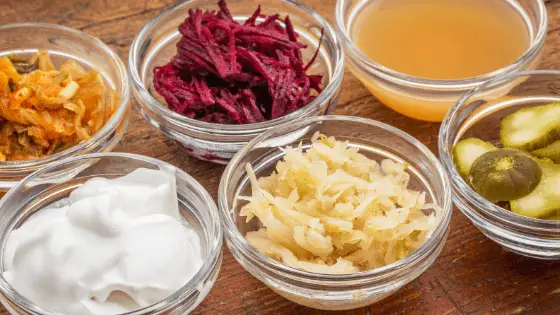
Foods that are cultured or fermented containing microorganisms that can restore the microflora of your gut’s lining. These are known as probiotic foods because they actually add new, helpful bacteria and yeasts to your system. Among the most beneficial of the foods in this category are:
- Kimchi and sauerkraut- both are forms of preserved cabbage that may also contain other vegetables. These two foods are fermented using acid (vinegar), which improves the nutrient availability of some plant foods. Fermented foods contain a wide variety of healthy bacteria.
- Kefir- a fermented beverage common in parts o the middle east. Kefir grains are small compounds that contain sugars, yeasts, bacteria, and proteins, and they can be added to milk, coconut water, or other liquids to start the fermentation process. The microbes in kefir are helpful for restoring appropriate levels of fungi and bacteria to the gut lining as well as fighting against harmful microbes in the digestive tract. These bacteria can also calm inflammation in the gut from certain chronic diseases.
- Kombucha- like kefir, this is a fermented drink made from adding sugar to tea and allowing natural yeasts and bacteria in the air to trigger fermentation. Once it begins to ferment, you can add fruit and other flavorings. Like kefir, it improves the natural balance of microbes in the gut.
- Yogurt- some yogurts contain active, live cultures, which means the bacteria that create the yogurt from milk are still present. When you eat them, these helpful bacteria are beneficial to your digestive system.
Other fermented foods that can help improve gut health include miso (fermented soybeans), tempeh, natto, buttermilk, kvass, and sourdough.
Herbs
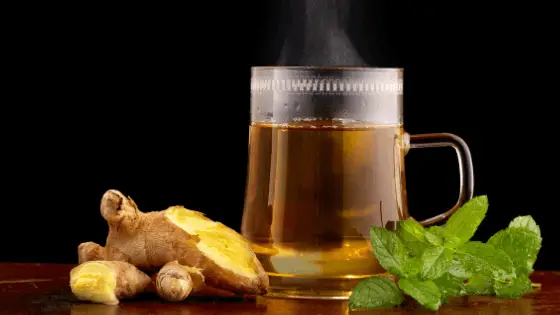
To relieve acute gastrointestinal symptoms, many herbs can help you feel better quickly. For example, one of the best remedies for nausea, upset stomach, and other common stomach complaints is ginger.
This bitter herb stimulates the production of stomach acids, which encourages stomach emptying. Ginger works well for those with morning sickness, motion sickness, and other forms of nausea due to medications and medical treatments.
Peppermint is another excellent herb for supporting digestion. It soothes an upset stomach and can calm gut inflammation, which is helpful for those with ulcerative colitis and IBS. This plant is known to reduce spasms in the gut lining while also relaxing bowel muscles, improving symptoms like constipation and diarrhea.
Water and Other Healthy Fluids

Your digestive system also needs plenty of fluids to keep everything moving, to ensure solids are broken down and absorbed, and to keep your body hydrated. Water is the best choice, and you should be drinking plenty of this throughout the day.
Bone broth is often recommended for those with digestive disorders, and the amino acids found in the liquid can heal the gut lining, prevent particles from escaping into the body, and promote a healthier environment for your gut microflora. Bone broth encourages healthy mucus production in the gut, too.
Final Thoughts
Other superfoods that are also good for digestion include honey, which has natural antibacterial properties, chia seeds, which naturally absorb water and help solid wastes to move easily through your system, avocado, which is an excellent source of healthy fats as well as potassium, which is vital for digestive health, and green tea, which is full of phytochemicals important for healthy bowel function.

